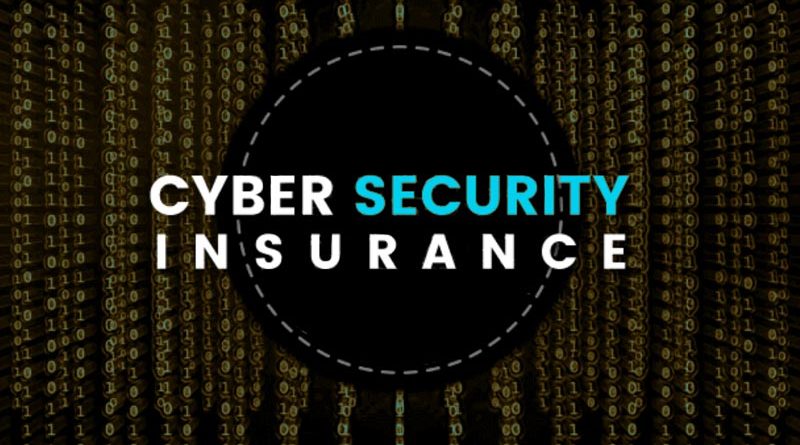7 Reasons Your Organization Needs Cybersecurity Insurance
Editor’s note: In recognition of this October, we are publishing a series of blog posts dedicated to educating and informing you about cybersecurity practices. This is the eighth in a series of posts. Below, you can find a list of links to the rest of the series:
- What is a Pig Butchering Scam and How Do You Protect Yourself?
- 6 Conditional Access Policies You Should Turn on Now
- Tips for Running an Effective Cybersecurity Awareness Campaign
- What is Quishing and How Do You Protect Yourself?
- Early Warning Signs Your Employees Need to Look Out for and Report to IT
- My Dad Lost Thousands of Dollars in a Romance Scam. Here’s How They Work and How to Protect Yourself
- NIST Releases New Password Rules: What Does It Mean for You?
- Why Does My Organization Need Cybersecurity Insurance and an MSP?
- Top 3 Cybersecurity Threats We Uncovered at GrrCon 2024
- Why Keeping a File with Passwords on Your Computer is a Terrible Idea
- How Do Passwords Get Hacked?
- What Happens When You Use the Phish Alert Button?
- Why Does Social Engineering Happen?
Cybersecurity insurance was once thought of as a luxury, but in recent years, it has become more and more of a basic necessity for organizations small and large.
It’s no longer a matter of “if” but “when” your organization will be the victim of a cyberattack. No security system is 100% secure, and it doesn’t matter if you are a small business or a large enterprise.
We’ll discuss why cybersecurity insurance is a critical part of your organization’s risk management plan, even if you have strong security tools and practices, and how it can save you financially and save your reputation.
Why Does My Organization Need Cybersecurity Insurance?
There are seven reasons why any organization should have cybersecurity insurance as part of its plan.
- Unexpected costs: Think of cybersecurity insurance as a financial safety net. When a cyberattack happens, there could be a lot of unexpected costs, including customer notifications and data recovery.
- Legal and compliance help: After a cyberattack, you might face legal battles or fines. Cybersecurity insurance can help cover these expenses.
- Fixing your reputation: After an attack, your organization could take a hit from a PR standpoint. Your customers might not want to do business with you. Some cybersecurity insurance policies help pay for managing the crisis and patching up your reputation.
- Investigating the breach: Understanding how a breach happened is crucial. This investigation can be expensive, but cybersecurity insurance often covers it, letting you dive deep without worrying about the bill.
- Ransoms: If hackers lock your data and demand a ransom, cybersecurity insurance might cover the cost of getting your data back. Note: The popular opinion is strongly against paying ransoms for stolen data.
- Extra help after an attack: While your MSP or IT team will jump into action to fix technical issues after an attack, cybersecurity insurance can cover the extra costs that go beyond immediate fixes, like recovering lost data or extra temporary solutions to keep your business running.
- Third-party losses: Not only do you have to think about your own losses as the policyholder, but you’ll also have to worry about losses to your vendors or customers. Cybersecurity insurance with third-party coverage covers you if someone claims damages because of an attack on your organization.
Real-World Example: Insight Consulting Group
Imagine a midsized consulting firm that fell victim to a sophisticated phishing attack. Despite having robust security measures in place, one employee inadvertently clicked on a malicious link, compromising the company’s customer database.
“You want an MSP or IT team focused on preventing, detecting and responding to cybersecurity threats, but cybersecurity insurance is imperative to cover costs when a catastrophic event burns the business down.”
- Unexpected costs: The organization faced $150,000 in legal fees and compliance fines, which were covered by its cybersecurity insurance.
- Legal and compliance help: The insurance covered the organization’s legal fees and helped navigate compliance issues, ensuring it met all regulatory requirements.
- Fixing your reputation: The firm used its insurance’s crisis management clause to get PR support, helping rebuild the company’s image after the attack.
- Investigating the breach: Cybersecurity insurance covered the $50,000 cost of hiring experts to investigate the breach.
- Ransom: Although the firm did not pay a ransom, its insurance policy included coverage for such an event.
- Extra help after an attack: The insurance helped cover costs for hiring temporary staff and restoring lost data, ensuring the company could continue operations smoothly.
- Third-party losses: The organization’s insurance covered third-party claims from partners who experienced downtime due to the breach, preventing further financial strain on the company.
Cybersecurity Insurance is Like Any Other Insurance
In your house, you probably have smoke alarms to alert you to fires and a fire extinguisher to combat them. But you likely also have insurance on the home. You need that insurance for devastating events, like if the whole house were to be destroyed by a fire.
Similarly, you want an MSP or IT team focused on preventing, detecting and responding to cybersecurity threats, but cybersecurity insurance is imperative to cover costs when a catastrophic event burns the business down.
It’s important to note security measures and insurance are not mutually exclusive; they should complement one another as part of your risk management plan.
And don’t think just because you run a small business that attackers won’t target you. In fact, many attackers target small businesses because they generally don’t have the security measures in place that a large corporation does.
According to the 2023 Business Impact Report conducted by the Identity Theft Resource Center, 73% of small business owners and leaders reported experiencing data breaches or cyberattacks in the past year.
Cybersecurity insurance is a must-have for your organization. It could save you from legal fees and brand remediation in the event of a cyberattack.
Not to mention the costs of investigating the attack so you can work with your IT team or MSP to ensure this never happens again.
Need a Security Assessment?
If you are looking to apply for a cybersecurity insurance policy, contact us here so we can help you improve your security measures.
Did you like this blog? You can subscribe to our newsletter to receive a weekly email with our latest blog posts.











